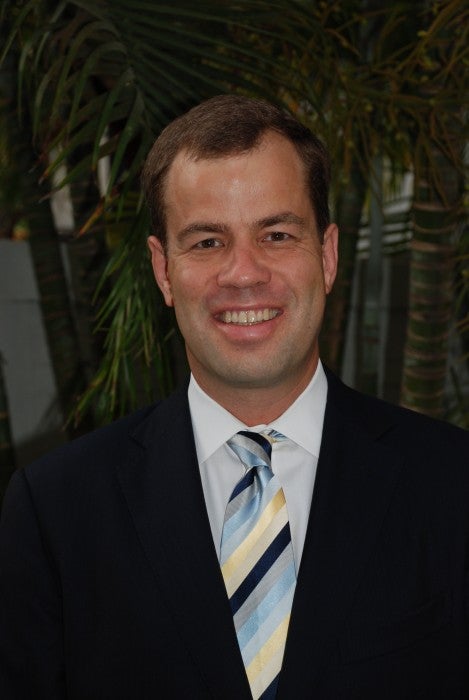
Many climbers immediately left the area following the avalanche. However, Brooks stayed, believing that the tragedy could create an opportunity to shed light on some of the broader issues between climbers, the Sherpa people, and the Nepalese government.
We connected with Brooks over email from Everest Base Camp to hear more about how events are unfolding at 17,000 feet and how he and others are taking this opportunity to advocate for change.
Aspen Idea: While many other climbers have left basecamp in the wake of the tragedy, you decided to stay. Why?
BE: I am part of a terrific, strong team here and many of us made the decision to stay. This morning, the first members of our expedition headed down the Khumbu Valley for home. The skies over the base camp were chaotic with all the helicopters vying for position to land and load up. The situation is fluid, and other climbers and I have come out very publicly on the side of the Sherpa vis-à-vis their demands against the Nepalese Government. One is much more able to impact outcomes and be in the mix while at base camp, instead of down in Kathmandu where the international press has congregated.
AI: This tragedy has put an international spotlight onto the plight of Everest Sherpa guides. How do you hope to see conditions change for the Sherpa people?
BE: I am a huge supporter of the Sherpa people. In travels across the Himalayas over the years, I am always struck by the work, ethnic traditions, and culture of high mountain people. The Sherpa community in the Khumbu Valley has benefitted enormously over the years from the climbing and trekking business around Everest and their income levels today, multiples of the average Nepali, reflect that progress. That being said, the profession of climbing Sherpa has been among the most dangerous in the world. At the memorial service yesterday, it became very clear that the Sherpa community is going through a very important, yet delicate and volatile, early-stage political process. At the end of the ceremony, the young Sherpa read out the manifesto of their demands for [officials in] Kathmandu.
Importantly, what has developed over the last few days is a real split between a group of younger Sherpa who are more militant and want their demands met, the mountain shut, and all climbers out under threat of violence; and the more moderate senior Sherpa who also want the demands met by the government, but have a much more cooperative and mutually supportive relationship with the climbers and guides. The memorial services cum political rally, led by this younger Sherpa element, shows that the road to successful negotiations with the Nepali Government is potentially long. That is where the climbing community at the base camp and beyond can play a role. We can show our support for the moderate and constructive Sherpa, lobbying the government to get to the table, and raise global awareness of the current situation beyond the usual sensationalism in the press.
AI: How did your experience as a Henry Crown Fellow influence the way you responded to this tragedy?
BE: At the core, I believe the Henry Crown Fellowship teaches you to be that person, metaphorically speaking, who does not shoulder the backpack and head down the valley, but rather stays at base camp to see how they can help or get involved. I had similar instinct in 1993 when as a young UN field officer in Cambodia, our village was attacked by the Khmer Rouge. Instead of being helicoptered out, we stayed, held the ground, and conducted an election in our village ten days later. That early experience in my professional life taught me the importance of staying out your post.
During my time as a Henry Crown Fellow, I was the CEO of Goldman Sach’s businesses in India when the Mumbai terrorist attacks happened. With some timely coaching from my Fellows and the lessons of my seminars, I was able to manage through the tragedy and keep our business running and people cared for during those dark, late November 2008 days. It is also typical of the Aspen Institute community, that some of the first e-mails I received after the events of last Friday on Everest were from members of the board and senior staff with words of encouragement and ideas for action.
AI: You decided to moderate a classic Aspen reading, “The Parable of the Sadhu” with the group at Everest Base Camp.
BE: I have been passing that classic reading around Everest Base Camp since Peter Reiling sent me a copy in the aftermath of the avalanche. In our tent here, we discussed this important reading over the usual dinner fare of fried rice, vegetables, and the occasional piece of spam. The spirit of the last five days has been one of teamwork and cooperation with some outstanding search, rescue, and medical efforts. All of the elements of the base camp came together, so the notion of helping the Sadhu became clearly the theme of the discussion. Let’s hope for mountain climbing in general, and Everest in particular, that once the mountain reopens, this season or beyond, that this spirit of cooperation holds and that valuable lessons from this tragedy become embedded in the culture of climbing this and other peaks.
Caitlin Colegrove is the network and communications manager for the Aspen Global Leadership Network.

